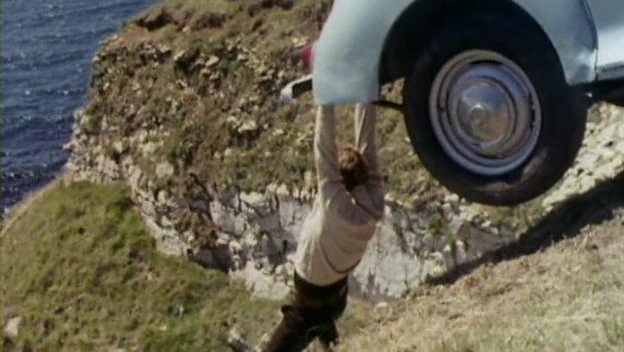Why Should You Care NH
By Bob Charest
April 1, 2017
I’m surrounded by darkness, headed higher and higher up the side of a mountain, the snow banks building taller and taller, no traffic in sight, and that’s good because the road is getting so narrow two cars wouldn’t be able to pass along here anyway.
We had a blizzard two days before, about a foot and half dumped in this area of the state.
All I can think is this: I never knew this road went to Nashua. All the years I lived in this town, covered it for the newspaper, and I never knew I could get there this way.
Well, guess what? I couldn’t.

Bob Charest
I started to get chills up my back about a mile along this road as I realized this passageway was a little too rustic to be a main route to New Hampshire’s second-largest city. No sooner had I heard the lady on my dashboard trying to convince me to “continue straight” than I had to slam on the brakes because my headlights were now facing a wall of snow. Good thing, too, because on the other side of that wall was a cliff.
I trusted technology, and it led me to a dead end. I flash back to the day before and the conversation I had with my wife.
Me: I’m going to a right-to-know workshop tomorrow night in Nashua, and I’ll head there after my stop in Pelham.
She: Do you know how to get there?
Me: Doesn’t matter. I have my GPS.
She: How long has it been since you used that thing?
Me: A long time, but why? It’s still good.
She: You don’t need to update it or something?
Me: What? Come on now.
When they discover my frozen body later this spring, I can imagine what words will be going through my wife’s head. “I told you so” has never been in her vocabulary, but it would be completely justified then.
The thing that really frosted my butt after I managed to turn around in a very tight area and head back down that hill, trying to get back to the main road, was the GPS lady who kept saying, “As soon as possible, make a U-turn.”
That ain’t going to happen, lady! Fool me once, shame on you, blah, blah, blah … We had a conversation, she and I, as I raced back down that hill. I was doing most of the talking. (This is why when I heard of the woman last weekend in Hooksett who had to be rescued by police in four-wheel-drive vehicles after her GPS directed her down an unmaintained road, I had to nod my head in understanding.)
I decided to see if this happens to other people, and a Google search didn’t disappoint, especially when I came up with this gem: “8 drivers who blindly followed their GPS into disaster.” Most of these drivers were driving in Europe or Australia, and the only real “disaster” was to their egos.
Technology is great … until it isn’t. Doing my post-mortem on this experience, I wondered how I could have prevented this, and my answer: I really don’t know. Obviously, I should have updated the GPS software, but I’m hard-pressed to come up with a way to make sure it doesn’t happen again. I should have trusted my instincts, maybe. But if an authoritative voice is telling you to do something, you usually do it.
….
I managed to make it to that workshop in Nashua, a few minutes late, but it was well worth attending.
Speaking of which, David Saad, president of Right To Know New Hampshire, gave an interesting slide show on the state’s right-to-know law, which is Chapter 91-A, Access to Governmental Records and Meetings. He was followed by Attorney Rick Gagliuso of Merrimack, who recounted some of his experiences over the years, including his time as attorney for The Telegraph of Nashua on various cases. The session was sponsored by The Telegraph and InDepthNH.org.
What both men said is that government belongs to us, and our business should be conducted in the open. However, there are some who still think the best way to get anything done is out of sight, away from where the public can see the process. This is especially frightening when we find out it is being done by boards all over the state.
It’s reassuring to know we have a law that protects the public’s right to know, but what both Saad and Gagliuso impressed upon me is that we have to do the legwork. It’s incumbent upon us to make it known we want our elected officials to follow the law, sometimes taking them to court if need be. The law is on our side.
However, we need to be proactive and let our public officials know when we think they are not doing our business correctly. The law can’t do this; we have to. That sounds like it means work for us, and it does, but that’s the way the law works.
Saad’s group has a website, righttoknownh.wordpress.com, and offers training classes around the state.
….
When I first read this next story in the New Hampshire Union Leader, I thought somebody was playing a trick on me because it was published on April Fool’s Day. The story’s headline was: “Connecticut could become first state to allow deadly police drones.”
The Reuters story noted that Connecticut could become the first state in the nation to allow law enforcement agencies to use weaponized drones if a bill passes the state legislature.
The bill was supposed to be a complete ban on weaponized drones, but as sometimes happens in the legislative process, bills become amended, and soon someone’s bill recommending one thing is allowing something else entirely.
I’d like to think this is what happened here because the story notes that when the bill was reported out of committee, it was approved, but with one exemption: law enforcement is not part of the ban. The bill now goes to the full house for a vote.
Fortunately, the governor has not supported such an idea in the past, and civil rights activists are quite understandably upset about it.
Interestingly, the story notes that North Dakota in 2015 approved a law that allows law enforcement to arm drones with non-lethal weapons such as tear gas and pepper spray.
I went in further search of why any state would want to do this, and I found this explanation in the Hartford Courant: Police are concerned that criminals are able to outfit drones with guns and bombs, so why shouldn’t law enforcement be able to counteract such mayhem with techniques and technology to outwit the bad guys?
That news story assured us that the bill is a bipartisan effort, meaning both Democrats and Republicans think it’s a good idea. One of the legislators suggested possible uses, including outfitting a drone with a Taser to fly in and zap a subject, shooting down other drones, or dismantling bombs in remote locations.
I thought it especially creative of one guy protesting outside the legislative office building in Connecticut’s state capitol last week with a sign that read: “Don’t drone me, bro.”
The issue was best summed up by Hartford Deputy Police Chief Brian Foley, who said his department bought a drone four years ago but has never used it. He said a weaponized drone could damage the trust between police officers and their communities. He was quoted in the Courant: “We are not trying to automate police ‘use of force.’ Moreover, when you have automation, you could invite technical glitches. This is not a gamble we are willing to take.”
….
Back to my original topic: I guess if there were a morale to this story, it’s this: Technology is great, technology is useful, but it still requires us to use our skills as human beings. There’s no artificial intelligence invented yet that will think for us. (But I’m assured by recent news items that it’s coming.) People drive into lakes because their GPS units told them to do it. If something looks like a boat ramp, stop!
And if I had to draw all these stories together and get to a point here to make you think this column was worth your time, it is this: We are in charge. Technology is not foolproof. It is still up to us to make the decisions. A machine, whether it be on our car’s dashboard or in the sky, can’t make the decisions we can make. Sometimes those decisions include a little bit of compassion and wisdom about real lives and human imperfection.
We don’t check our life experience, sometimes our humanity, at the door when we turn on a device.
Bob Charest has been in the news business since 1977. He has worked at newspapers in Massachusetts and New Hampshire as a reporter and editor. A graduate of Boston University, he has consulted with InDepthNH.org on editing and grant proposals since before its founding in 2015. He write on topics related to advances in technology and how they have affected our privacy in America.





